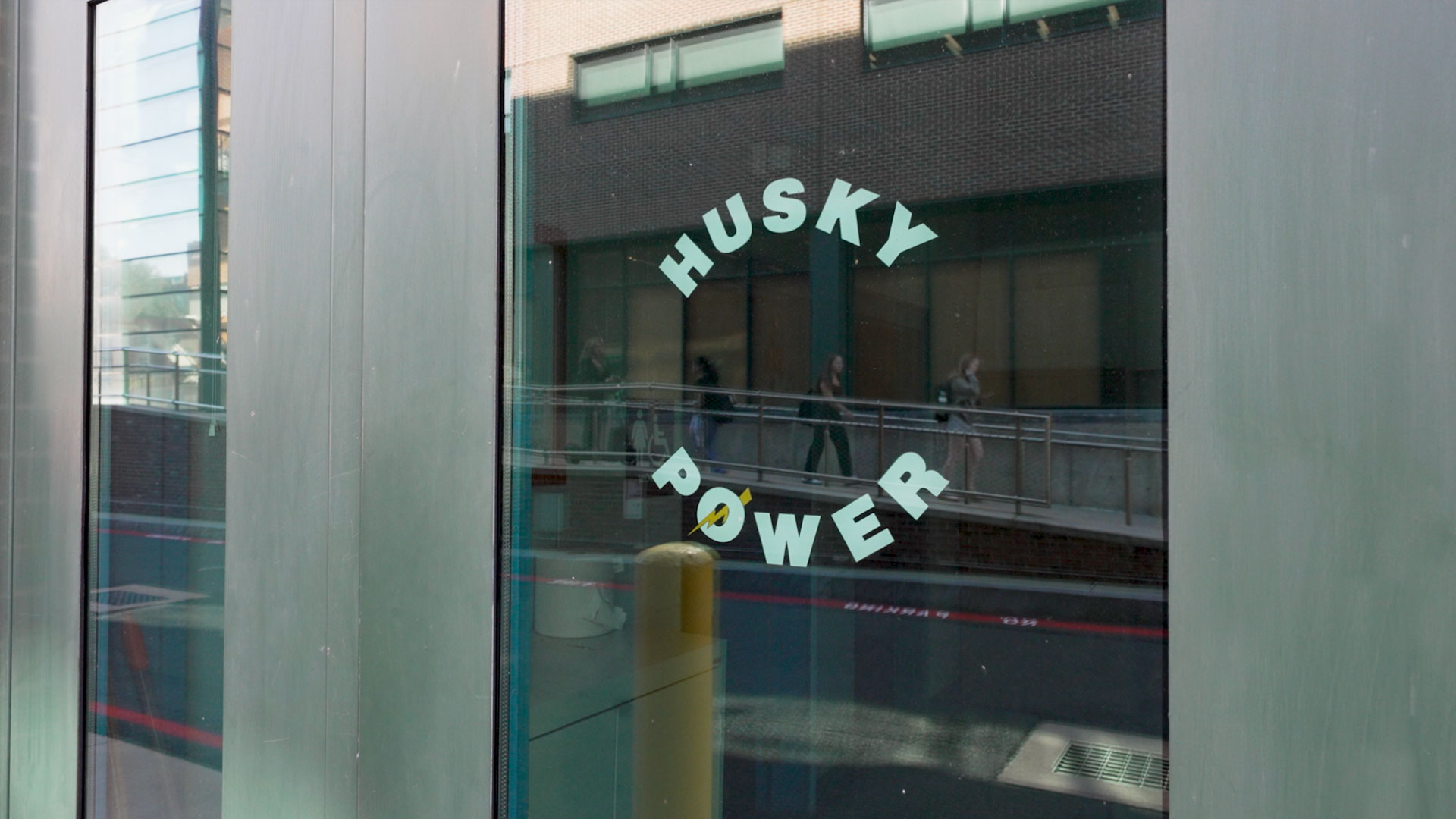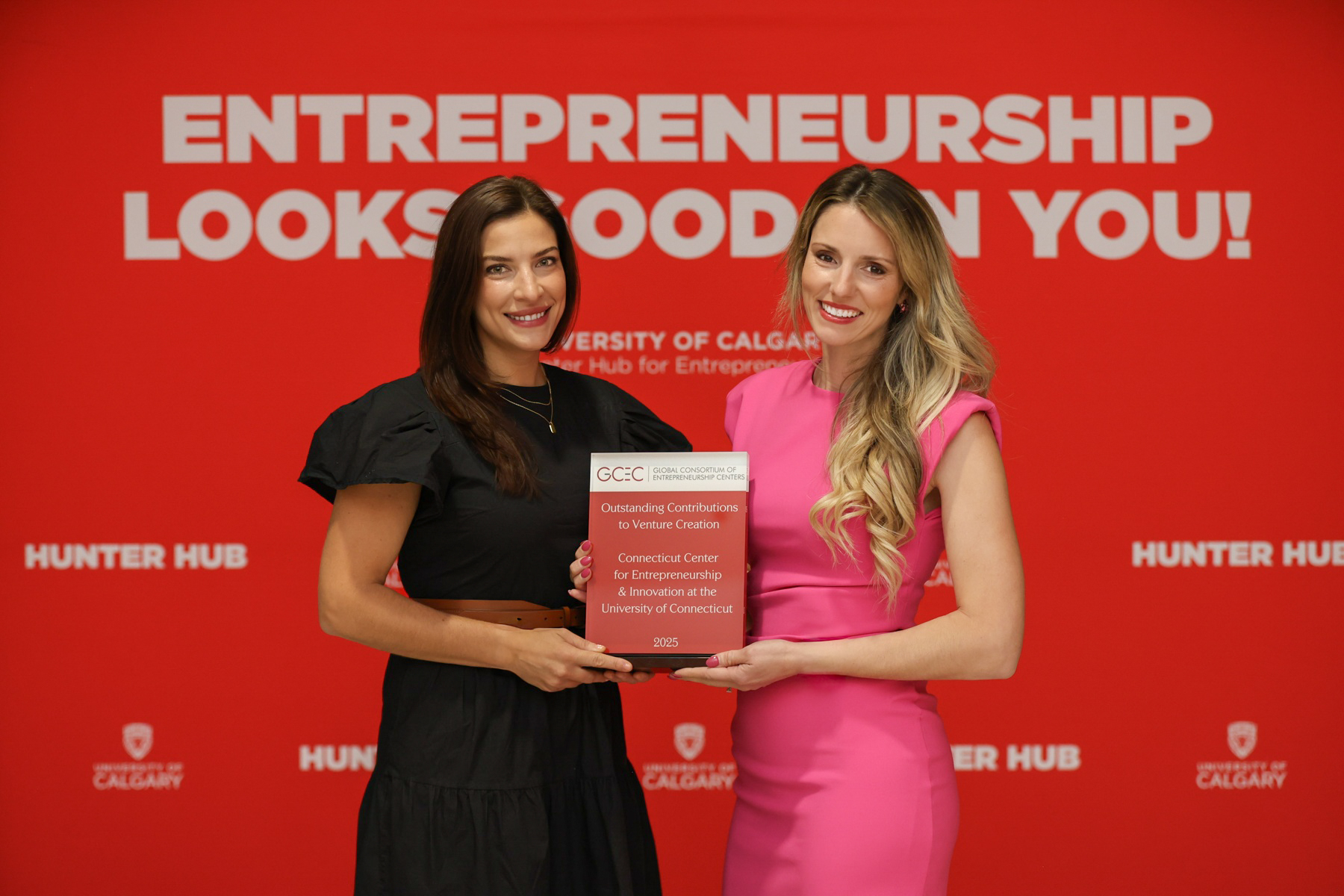As the song goes “all you need is love” – or, according to the Fulbright Program, at least more goodwill. The prestigious international exchange program was designed to increase rapport between nations, and four UConn students have been awarded fellowships to pursue that goal this year.
“UConn had a good year,” says LuAnn Saunders-Kanabay, assistant director of UConn’s Office of National Scholarships & Fellowships and advisor for the Fulbright Program.
“It’s an incredible calculation,” says Saunders-Kanabay. “There has to be a match between what host countries want and the personal and academic attributes and experiences that those who apply can contribute.” Last year UConn had a finalist but no recipients.

This year’s fellowship recipients are graduate student Zareen Thomas, and recent graduates Julianna Lau ’14 (CLAS) and Krisela Karaja ’14 (CLAS). In addition, undergraduate Katie Loughrey ’16 (CLAS) won a summer institute award.
Thomas, a doctoral candidate in anthropology, is currently in Colombia, studying the relationship between community, youth organizations, and marginalized urban youth.
“The Fulbright allows participants on both sides of the exchange to have a less caricatured understanding of each country,” says Thomas. “We work as cultural ambassadors, providing each other with a more nuanced understanding of our nations’ peoples.”
Thomas, who aspires to a career in academe specializing in the Andes and the cultural production of music and art, praised UConn’s supportiveness in helping her obtain the Fulbright. “LuAnn provided workshops and feedback to help us write our personal and grant purpose statements so they are most salient for a broad audience,” she says.

And with faculty support, Karaja, an Honors graduate with a double major in English and Spanish literature, departs in October for eight months in Albania.
“Whenever I received an update about my application for a U.S. Student Fulbright Award, I sent an email to about 10 of my professors,” says Karaja. “All my Spanish and English professors were so helpful.”
Karaja will use her Fulbright award to complete a project she began as an undergraduate, comparing the works of contemporary Albanian poets and their perspectives on nationalism and transnationalism. She initially visited Albania with support from a UConn Summer Undergraduate Research Fund (SURF) grant.
“On that first trip I called poets and scholars to network for possible future work, which made the Fulbright possible,” says Karaja. Karaja grew up speaking English, while learning Albanian from her parents, who immigrated with her to America when she was two years old.
Karaja was editor-in-chief of this past spring’s issue of Long River Review, the annual UConn student-run literary magazine, as well as president of UConn’s Albanian Student Association.

“I would love to become a literature professor or maybe work at the United Nations,” she says. “I enjoy working where I’m generating dialogue between different cultures; I’m really happy about the Fulbright because it facilitates that dialogue.”
Lau, an Honors graduate in biological sciences, won a year-long Fulbright award to work as an English teaching assistant at an elementary school in Taiwan. An aspiring pediatrician, Lau wanted to immerse herself in a new culture, learning teaching and interpersonal skills to prepare for her career.
“I want my students to understand that learning English is important to connect with the rest of the world, and be competitive in the global market,” says Lau.
Loughrey, an Honors student majoring in English and anthropology with a minor in digital arts, spent July 2014 at Nottingham Trent University on a United Kingdom Summer Institute Fulbright Award.
“The course being offered touched on creativity, culture, history, and heritage, which I thought would give me a lot of good connections and inspiration for the future. And it was fun,” she says.

The Fulbright experience may have opened the door for this two-time UConn Presidential Scholar to have added a gem to her design portfolio, only mid-way through her University career. On assignment, Loughrey designed logos of the sites her Fulbright class visited; one of her British professors may include Loughrey’s design in his project to rebrand a historic park.
The primary source of funding for the Fulbright Program is an annual congressional appropriation to the State Department. Since its inception in 1946, approximately 310,000 scholars have participated.
“The Fulbright Program is an opportunity for students to engage with the world with the ultimate goal of creating mutual understanding,” says Saunders-Kanabay. “They learn about themselves in the process.”


